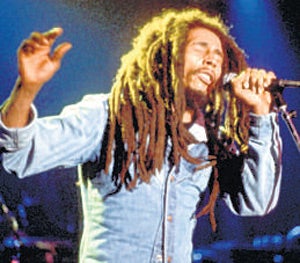Story of the Song: Bob Marley's Redemption Song

Your support helps us to tell the story
This election is still a dead heat, according to most polls. In a fight with such wafer-thin margins, we need reporters on the ground talking to the people Trump and Harris are courting. Your support allows us to keep sending journalists to the story.
The Independent is trusted by 27 million Americans from across the entire political spectrum every month. Unlike many other quality news outlets, we choose not to lock you out of our reporting and analysis with paywalls. But quality journalism must still be paid for.
Help us keep bring these critical stories to light. Your support makes all the difference.
Despite never making the UK charts, "Redemption Song" remains one of Bob Marley's defining songs. The closing track on his final studio album, 1980's 'Uprising', it's the sound of the reggae star signing off with special poignancy. It was written and rehearsed by Marley and the Wailers in the closing months of 1979, during the band's live shows for the 'Survival' album, but kept in the can. When Marley presented Island Records' Chris Blackwell with the tapes for 'Uprising', the following year, Blackwell nodded with pursed lips. Good as it was, he thought it lacked something. Marley took his point and the following day he returned with the outstanding "Redemption Song" which duly completed the album's running order.
The song was recorded by Marley at his own Tuff Gong studio in Jamaica, with the singer accompanying himself on acoustic guitar. It was this stark solo take, more akin to Bob Dylan's early protest work than the hard-nosed reggae with which he had made his name, that made it on to 'Uprising'. A full band version later appeared as a B-side and a bonus track on the 2001 pressing of the album.
It was the final Marley single, the last song he performed in concert, in Pittsburgh in September 1980, and was brought to the wider listening public when it was included on the ifrst mainstream Marley compilation, 'Legend', issued posthumously in 1984.
Join our commenting forum
Join thought-provoking conversations, follow other Independent readers and see their replies
Comments